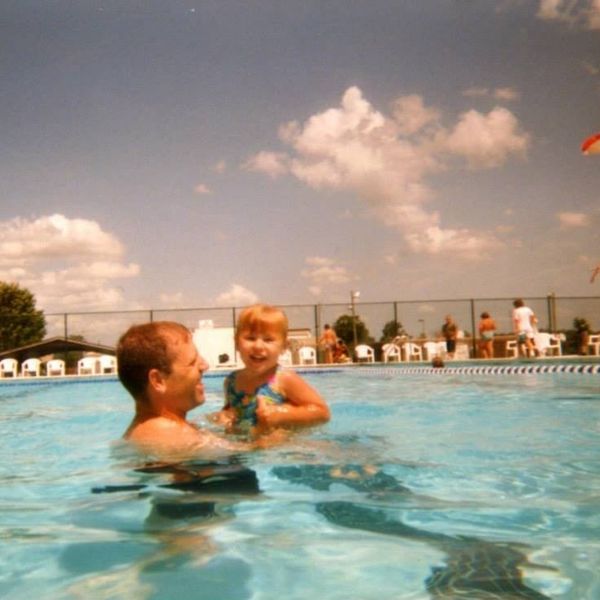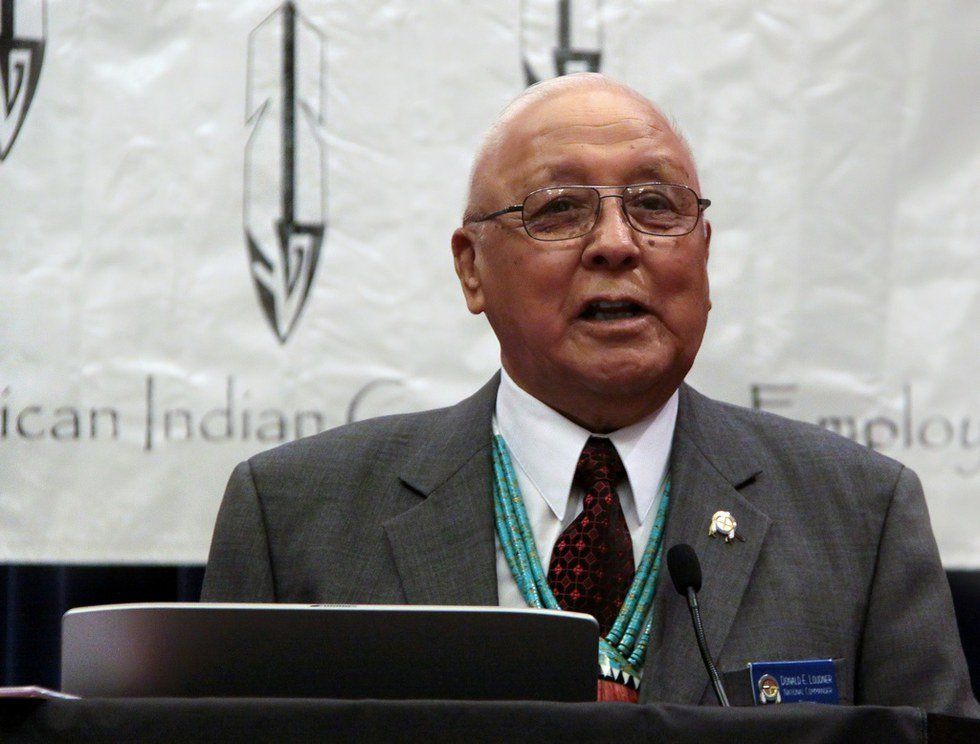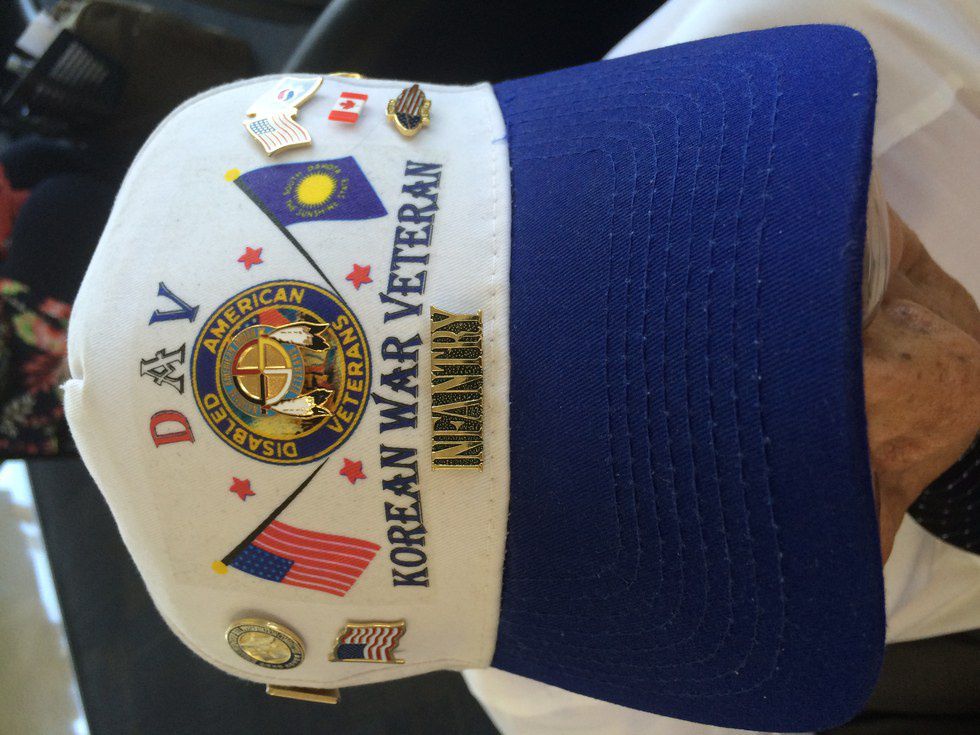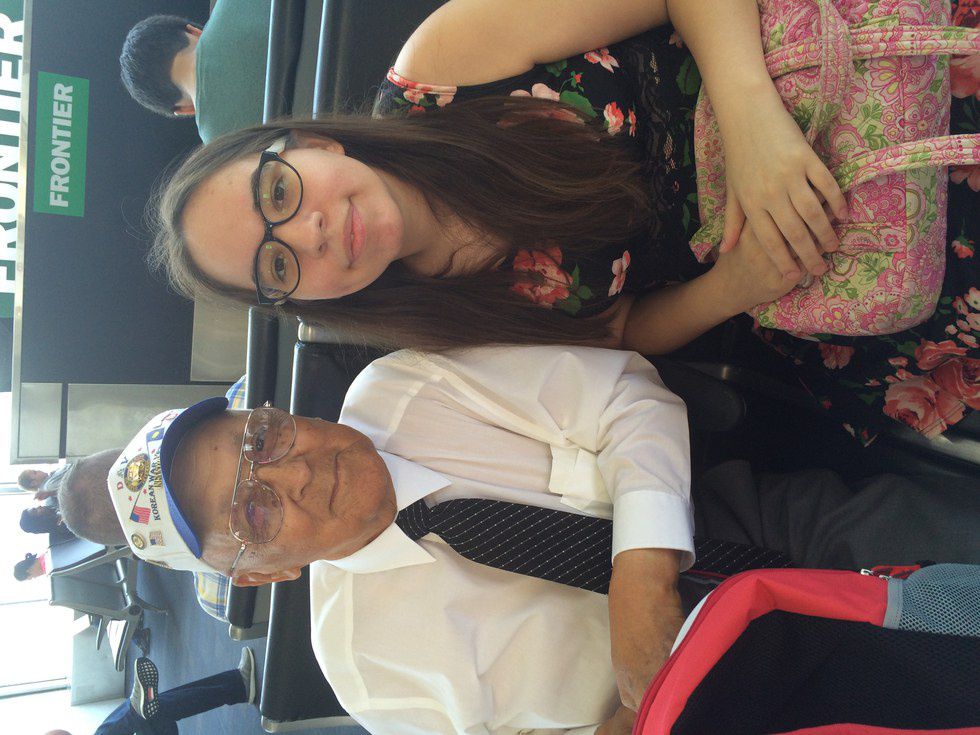While I was waiting for my flight to Denver, I met a cheerful man named Donald Loudner, a Native American commander of 560 Indian tribes. He had just come from celebrating the anniversary of the treaty of ceasefire and Korean War. He had told me that he was both a veteran of the Korean and Vietnam war. At the celebration, Loudner and other Native American veterans came together to celebrate what they had accomplished.
Loudner had expressed how many native Americans were willing to do anything to fight for peace and freedom of their country. They did not even ask for any benefits in return. Loudner had joined the army at 18 years old with 14 of his cousins. Two of his cousins had gone through rough patches to make sure that they protect their tribe and country.
One of the cousins was half blind, but that didn't stop him. His cousin went to go through the eye test and his blind eye, so that he was able to read the eye chart and pass. With doing so, he was able to fight for two years in the army.
His other cousin, Godfrey Loudner, gave up his highest opportunity to support his family. When he was in school, Loudner had the highest GPA at Notre Dame with the highest grades in math. He had given up helping to build missiles, which gave a pay of thousands of dollars to support his tribe. His name is now hung in The University of Notre Dame.
Mr. Donald Loudner served in the army for 33 years. During his career, he worked as a national commander, consultant for Congress and security. The flashbacks he had while retelling his experience of both wars were gruesome; however, he did not regret his time, especially as a Hunkpati Dokota Sioux.
The Sioux had been working with the military to translate their language to use as code since 1918. Using the Sioux language, the military were able to win World War I as the enemies could not translate it. With doing so, the Sioux felt they were able to save millions of people's lives. The army decided to keep up with the Native American language as code by adding the Navajo's language in 1941. At the end of the war, nine tribes' languages were being used as code.
Mr. Donald Loudner is very happy with what he has accomplished, as he did not ask for any benefits and had received two Purple Hearts. Now at 85 years old, he is working on having two books published and is hoping to receive the highest award: the war bonnet. The war bonnet must be earned and given as one must earn every feather.
His advice to the next generation was that "not everyone was cut out for college. If you want to be something however, you may join a vocational school or join the military. You can learn anything in the military, including Air Force. With the training you receive from the Air Force, you'd be able to get any job you wanted at any airline as they are always looking for something."























